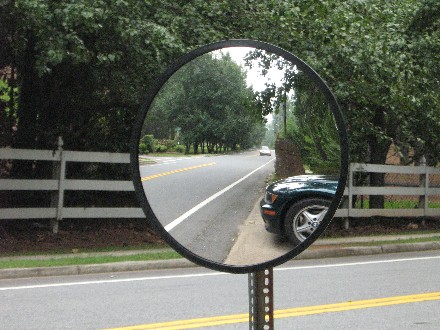
I once got into one of those deep discussions with a friend about the difference between being humbled and being humiliated. My friend insisted that both were the same but I insisted that they were not. Although we never managed to agree, the debate led me to think about why we could not ultimately find common ground. Ultimately, I concluded that we were looking at two completely different things. My friend saw humiliation as being put down, and humility as resulting from being put down, so he concluded that humiliation brings about humility. While I agree that being humiliated might make one more humble, I believe that this is only a small part of the story and certainly not enough to generalize and sweep both terms under the same rug.
Humiliation is Public and Humility is Private
Humiliation only occurs when we feel we have looked bad in public. A castaway living on a deserted island who burns his dinner will not feel humiliation because there is nobody to judge his performance. In other words, the flames of humiliation are fanned by public exposure and shame. The less we care about public acceptance or judgment, the less we will be humiliated by anything that public sees. Humility, on the other hand, does not depend on and even avoids public exposure. The humble person does not do what she does to gain public acceptance or acclaim. Humility is pure and simple. Its motivation is not public favor but, rather, private value. The Virgin Mary, for example, a paragon of humility, did not seek fame or popularity but only the fulfillment and satisfaction of loving, serving, and obeying God.
Humiliation is Superficial and Humility is Transcendental
Since humiliation is obsessed with public perception, it is by nature superficial. A criminal who is not caught will not feel humiliation because nobody is aware of his crime. That criminal’s only concern is not being caught. Humiliation does not concern itself with the right or wrong of things but with public perception. Humility, on the other hand, transcends what is merely superficial and goes much deeper. People are not humble in order to look good because false humility is so apparent and obvious. Humble people never think about their humility because to do so would contradict their very humility.
Humiliation is Selfish and Humility is Selfless
By definition, humiliation is obsessed with self. The person who fails to help an elderly person cross the road because he is afraid that his friends would mock him for doing so is only thinking of himself in trying to avoid humiliation. In fact, one cannot feel humiliation unless one is thinking of oneself. Veronica did not feel humiliation in jumping to wipe Our Lord’s face because she was not thinking of herself and, consistent with the earlier points, did not care what others thought of her actions. In fact, Veronica was humble yet courageous in her actions. Her selfless love and compassion for Our Lord was so great that what we perceive as courage was, in fact, as natural as breathing for her. There were no other options to her than to help Our Lord because she humbly saw herself as a simple instrument to bring relief to him.
Conclusion
How often do we hear that Christ suffered a humiliating death! How foolish is that assertion in the light of what we have discussed here! How can lovingly sacrificing oneself out of love ever be humiliating? Perhaps only to the eyes of a selfish, self-obsessed world so steeped in appearances and popularity! Love and service to others can never be humiliating. How can we say, for example, that Mother Teresa humiliated herself by caring for the personal needs of the poor and sick? At the end of the day, we can never humiliate ourselves by following Our Lord, who humbled himself to save us. Our Lord showed us that the value of what we do never depends on what this world thinks of our actions. Rather, the more we place God and others before ourselves, the closer to God we will move. Let us follow Christ in loving and serving God and others. Let us look only to God for favor and we will truly be oblivious to the foolish swipes which this superficial world calls humiliations.
2017 Gabriel Garnica










